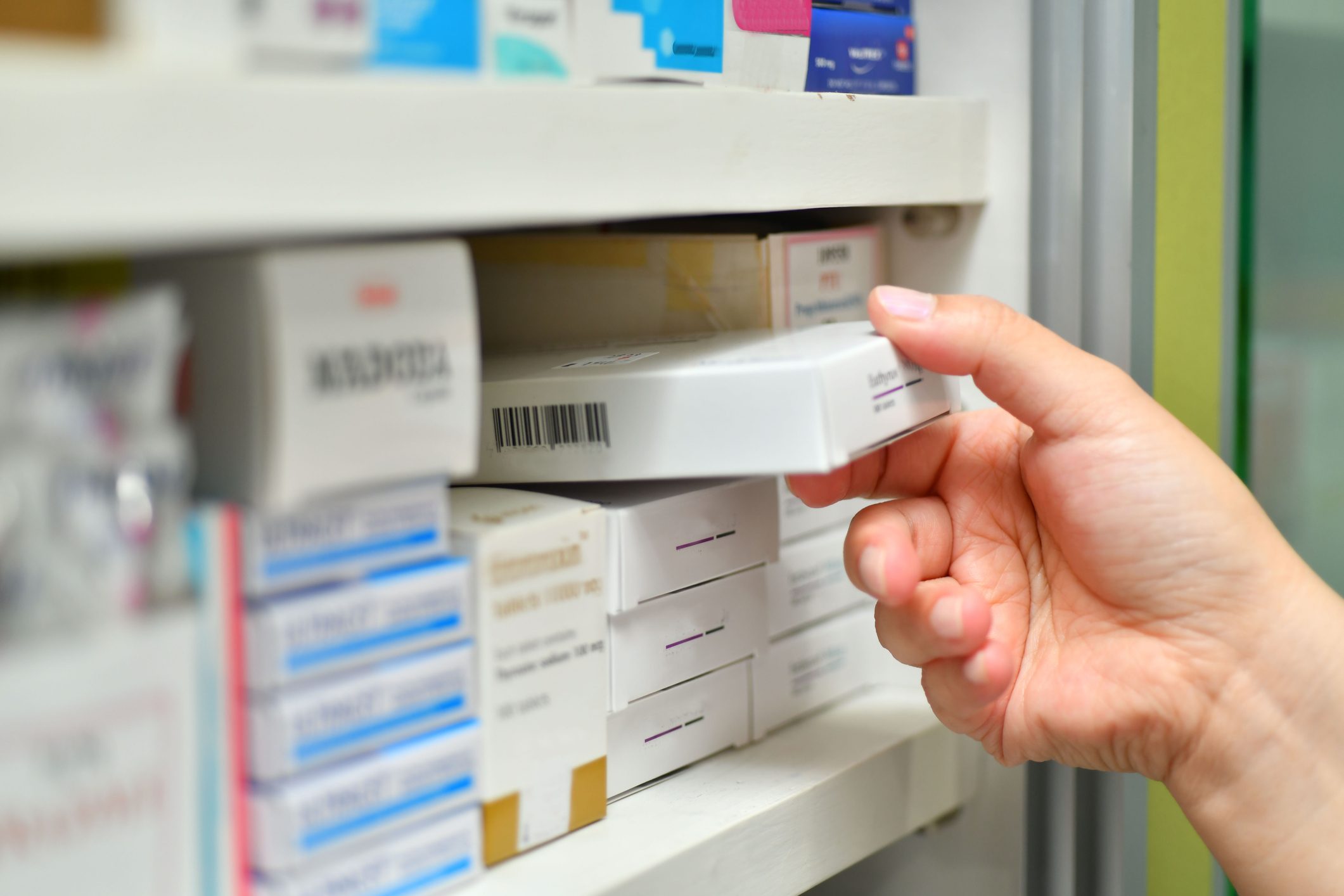It's also prescribed to treat such conditions as seizure and panic disorder. Here's what national experts say is problematic about the drug.

More Than 110,000 Packages of an Anxiety Medication Recalled Nationwide at the Highest Risk Level

In a post dated 2017, the National Alliance on Mental Illness shared that 40 million U.S. adults had clinical anxiety, which is the same number of Americans who have diabetes—one of our most pervasive diagnoses. That anxiety data was released before the Covid pandemic surfaced anxiety and other mood-related conditions for so many more.
These trends have helped bring mental health to the forefront, with more Americans feeling support to manage their symptoms with medication. If you take one common medication for anxiety, panic, or seizure, there’s a matter to have on your radar: The U.S. Food and Drug Administration (FDA) recently announced that Endo USA, Inc., a Pennsylvania-based company, had recalled 113,331 packages of clonazepam medication.
This week, the FDA has shared an update to advise consumers and healthcare professionals that the incident has been designated as a Class I recall. In its three-tier classification system, this indicates the highest risk—per the FDA’s Class I recall definition: “A situation in which there is a reasonable probability that the use of, or exposure to, a violative product will cause serious adverse health consequences or death.”
The company voluntarily initiated the recall after discovering that, due to a third-party packaging error, the medications were mislabeled with the incorrect strength on the carton. The FDA’s report states the blister strips inside the product carton reflect the correct strength of the active ingredients.
The recall affects Clonazepam Orally Disintegrating Tablets, USP, 1 milligram (mg), which are available by prescription only in cartons of blister packs containing 60 tablets each. They were distributed by Chestnut, NY-based PAR Pharmaceutical to retail pharmacies across the nation.
You can determine whether you have acquired the affected packages by looking for the following information on the carton (be sure to double-check all details against those listed by the FDA and speak with your filling pharmacy or healthcare provider to determine whether your supply is affected):
Clonazepam ODT, USP (C-IV) 2mg / 49884-310-02
- Lot numbers: 550176501, 550176601
- Expiration: February 2027
Clonazepam ODT, USP (C-IV) 0.125mg / 49884-306-02
- Lot number: 550174101
- Expiration: January 2027
Clonazepam ODT, USP (C-IV) 0.25mg / 49884-307-02
- Lot numbers: 550142801, 550142901, 550143001, 550143101, 550143201, 550143301, 550143401, 550147201, 550147401
- Expiration: August 2026
Clonazepam ODT, USP (C-IV) 1mg / 49884-309-02
- Lot numbers: 550145201, 550175901, 550176001, 550176201
- Expirations: August 2026 or February 2027, depending on lot number
“Children and adults who inadvertently consume a higher dose of clonazepam could be at increased risk for the adverse events of significant sedation, confusion, dizziness, diminished reflexes, ataxia, and hypotonia,” the maker announced via the FDA. “There is reasonable probability for significant, possibly life-threatening, respiratory depression especially for patients with concomitant pulmonary disease, patients who have prescribed dosing near maximal dosing, and patients also taking other medications that could cause additional respiratory depression.”
As of their original recall announcement in November, Endo stated they had not received any reports of illness that were linked to use of the products.
Endo has arranged the return of inventory through Inmar, Inc., a supply chain solutions company. Consumers with questions regarding this recall can contact Inmar by telephone or email.
To report an adverse reaction, you can fill out the FDA’s MedWatch Adverse Event Reporting program.
For daily wellness updates, subscribe to The Healthy by Reader’s Digest newsletter and follow The Healthy on Facebook and Instagram. Keep reading:




















